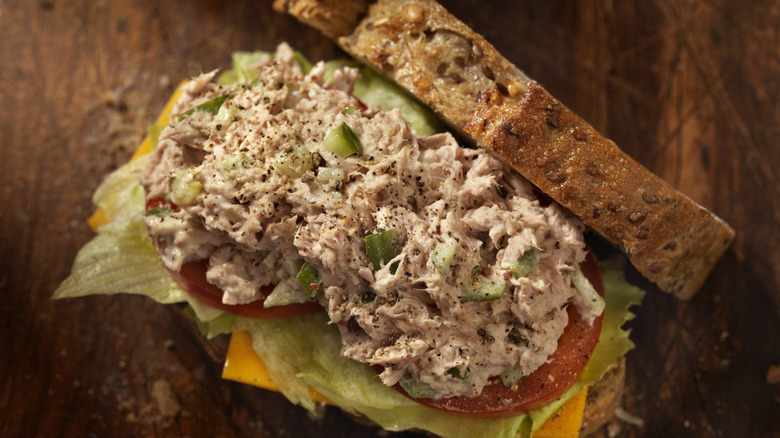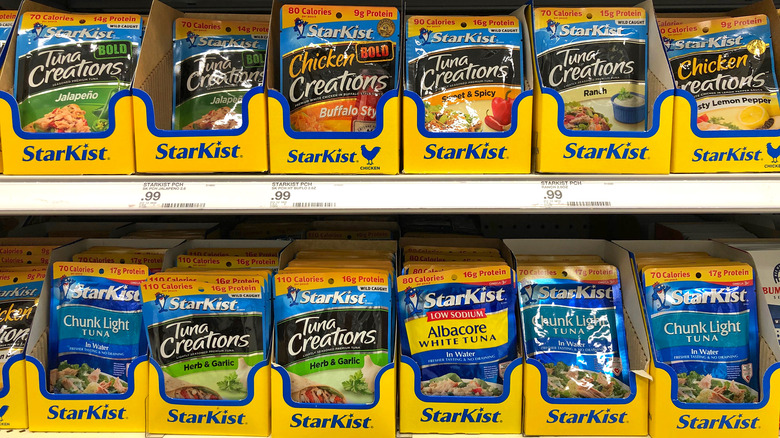The Pros And Cons Of Skipping Canned Seafood For Pouches
If you love canned tuna fish or salmon but don't exactly enjoy draining the fishy-smelling water, you might agree that the advent of the pouched variety was arguably the best thing since sliced bread. Not only do you get to skip washing out the tin and the inevitable aroma that overtakes the sink, but pouches are also lighter and easier to take with you on the go — no can opener required. They also take up much less space and are easy to slide in your pantry or drawer.
But perhaps the biggest pro of pouches is the automatic exclusion from any exposure to bisphenol A (BPA), a chemical used in the food industry to make some plastics that store food and water and resins that line metal cans. There is evidence that it does leak into the food and has some negative health effects. While deemed safe in small amounts by the FDA, if you're consuming a lot of packaged foods that contain BPA, your exposure may be on the higher side. Looking for a BPA-free label on cans and choosing BPA-free pouches of seafood can help minimize your intake.
The downside to opting for pouched seafood
There are also some cons to choosing pouched over canned that are worth considering. One big downside is the lack of sustainability of the packaging. Unlike cans, pouches are not recyclable. And on another sustainability note, it can be hard to find some versions of pouched fish (such as light tuna) that are certified sustainable or caught via humane methods that minimize ocean bycatch, such as pole-caught, pole-and-line-caught, or troll-caught tuna.
From a culinary perspective, since the pouches don't require water or oil to block out exposure to air when packed, the meat ends up being drier due to the lack of a need for liquid. A little extra dressing may be required for that tuna or salmon salad. Another edible downside is that seafood in a rigid can is protected and able to maintain its texture and large chunks. Pouched seafood is exposed to bumps and bangs so the meat may end up developing a mushier consistency and in smaller pieces. Keep in mind, the pouches also tend to be a bit more expensive than cans so the cost per serving of your meal-prepped tuna salad may go up a bit.

